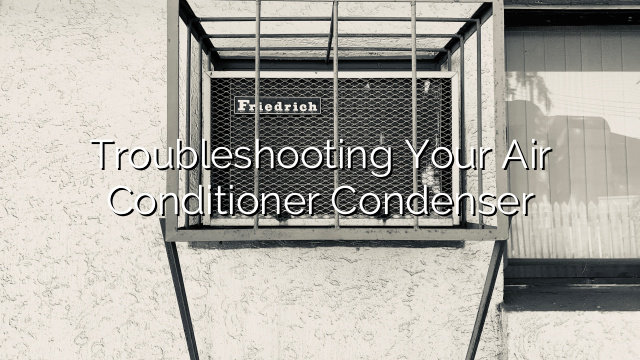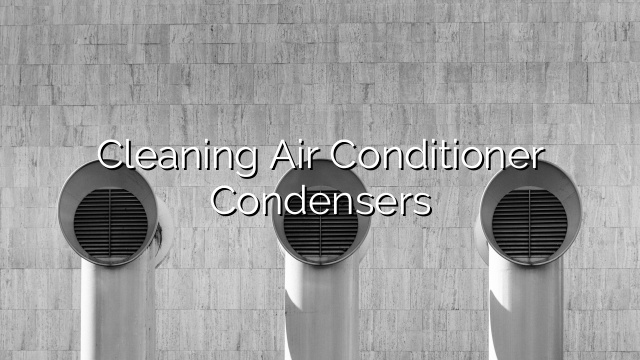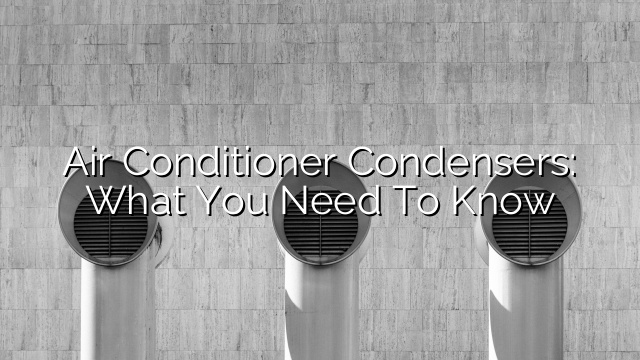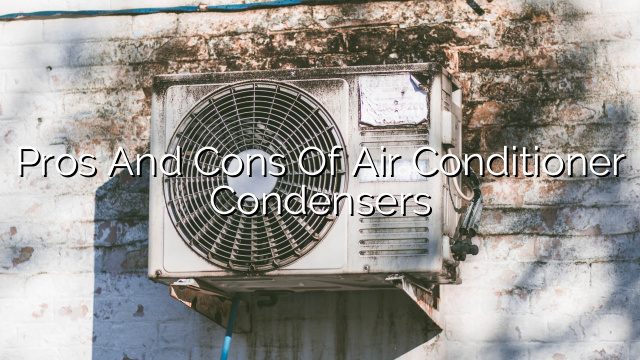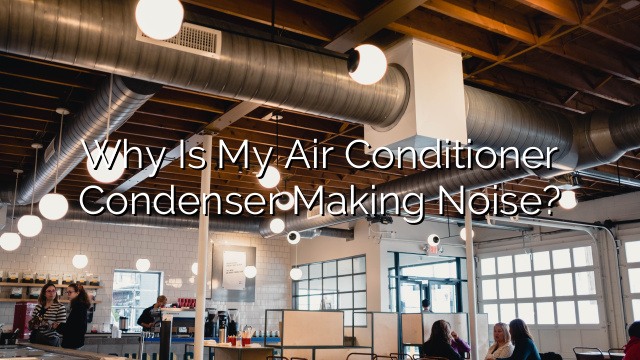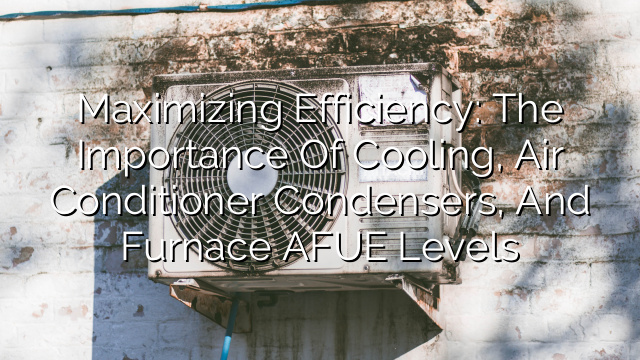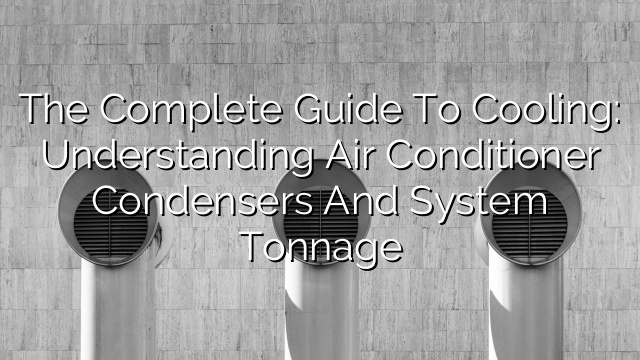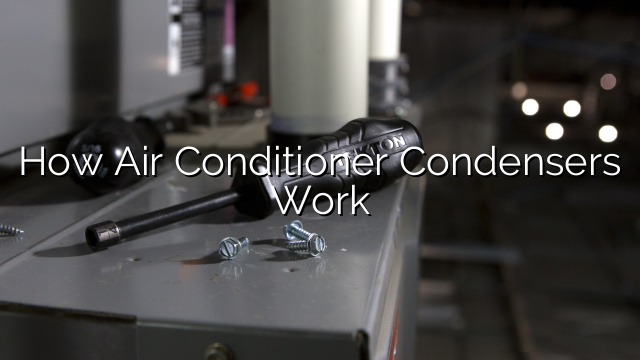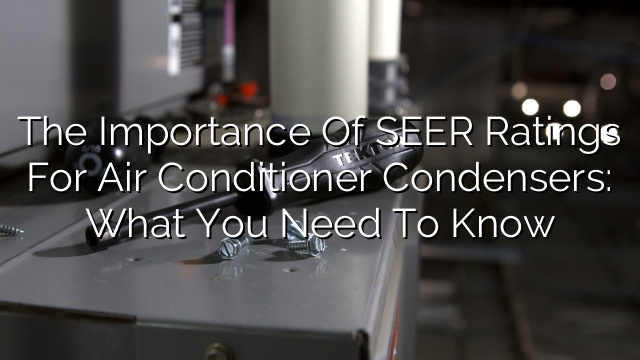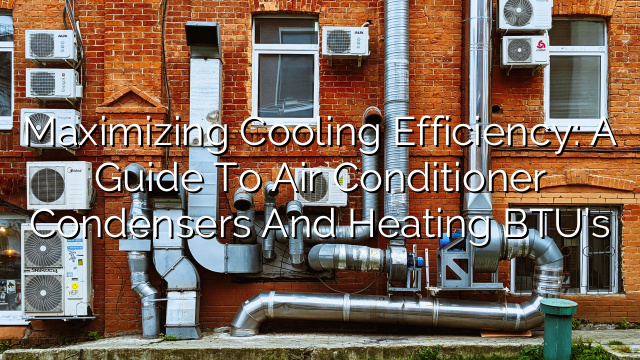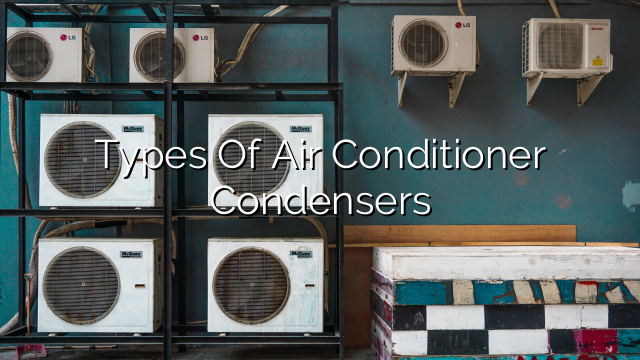It’s a hot summer day and you’re relying on your air conditioner to keep your home cool and comfortable. But suddenly, you notice that the air coming out of the vents is warm instead of cold. The culprit could be a problem with your air conditioner condenser. In this blog post, we will discuss some common issues that can arise with your condenser, as well as troubleshooting steps you can take to get it working again.
FAQ
1. Why is my air conditioner condenser not working?
There could be several reasons why your air conditioner condenser is not working. It could be a power issue, a dirty condenser, a faulty fan motor, a capacitor problem, or low refrigerant levels. By following the troubleshooting steps discussed below, you may be able to identify and resolve the issue.
2. How do I troubleshoot my air conditioner condenser?
To troubleshoot your air conditioner condenser, you can follow these steps:
- Check for power
- Clean the condenser
- Check the fan motor
- Test the capacitor
- Check the refrigerant levels
- Call a professional
3. What should I do if my air conditioner condenser is not receiving power?
If your air conditioner condenser is not receiving power, you can try the following:
- Check if the unit is plugged in
- Check the circuit breaker and reset it if tripped
- If the breaker continues to trip, seek professional attention for an electrical issue
4. How do I clean the condenser?
To clean the condenser, you can follow these steps:
- Turn off the power to the unit
- Remove any debris from the surrounding area
- Gently clean the fins on the condenser with a soft brush
- Use a hose to spray water through the condenser to remove dirt and debris
5. What should I do if the fan motor is not working properly?
If the fan motor is not working properly, you can try the following:
- Turn off the power to the unit
- Inspect the fan blades for damage or obstructions
- If the blades are damaged, they may need to be replaced
- Check the wiring connections to the fan motor and ensure they are secure
- Test the motor for continuity using a multimeter
- If there is no continuity, the motor may need to be replaced
6. How do I test the capacitor?
To test the capacitor, you can follow these steps:
- Turn off the power to the unit
- Remove the access panel on the condenser
- Use a multimeter to test the capacitance of the capacitor
- If the reading is significantly lower than the indicated rating, the capacitor may need to be replaced
7. What should I do if my air conditioner has low refrigerant levels?
If your air conditioner has low refrigerant levels, it is best to contact a professional. Low refrigerant levels can be caused by a leak in the system, which needs to be repaired by a trained technician.
8. When should I call a professional for help?
If you have gone through the troubleshooting steps above and are still experiencing issues with your air conditioner condenser, it may be time to call in a professional. HVAC technicians have the knowledge and tools to diagnose and repair complex problems with your air conditioning system. They can also perform regular maintenance to prevent future issues and keep your system running efficiently.
Conclusion
Troubleshooting your air conditioner condenser is an important part of maintaining your cooling system. By checking for power, cleaning the condenser, inspecting the fan motor, testing the capacitor, and checking the refrigerant levels, you can address common issues and potentially save yourself from an expensive repair. However, if you are unsure or uncomfortable with any of these steps, it is always best to contact a professional for assistance.

